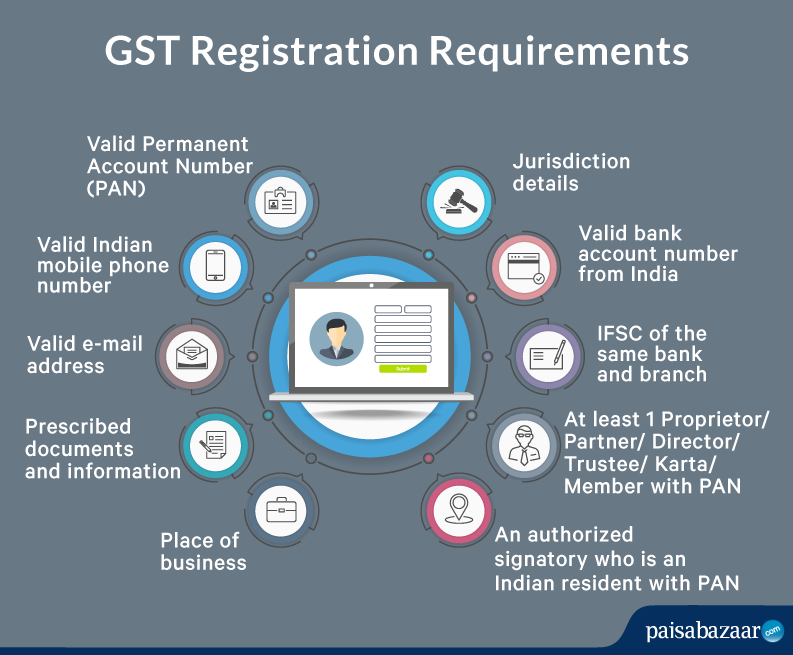Optimize Your Cost Savings with the very best GST Registration Services in Singapore
Optimize Your Cost Savings with the very best GST Registration Services in Singapore
Blog Article
From Beginning To End: The Ultimate Roadmap to GST Enrollment for Services Looking For Financial Stability
Navigating the complexities of Goods and Services Tax Obligation (GST) registration is a vital step for businesses aiming for financial stability. From comprehending the fundamental principles of GST to abiding by post-registration standards, the process can appear intimidating in the beginning glimpse. Damaging down the roadmap right into convenient steps can improve the enrollment journey for services looking to enhance their financial standing. Let's explore the essential elements that compose this best roadmap and find exactly how each phase adds to laying a solid foundation for financial success.
Recognizing GST Fundamentals
Looking into the essential concepts of Item and Provider Tax (GST) is vital for gaining a comprehensive understanding of its implications on companies and the economy. GST is a value-added tax imposed on many goods and solutions for domestic consumption. It has replaced multiple indirect tax obligations that existed in the pre-GST era, simplifying the tax obligation structure and boosting ease of doing company in India. Under the GST system, both services and goods are exhausted at a particular rate, which is established based upon their category. If their yearly turnover goes beyond the threshold restriction established by the government, services are required to sign up for GST. Input Tax Obligation Credit History (ITC) is a significant attribute of GST, allowing services to declare credit for taxes paid on inputs, minimizing the total tax concern. Recognizing the essentials of GST is important for organizations to comply with tax obligation regulations, manage their funds successfully, and add to the nation's economic growth by participating in a transparent tax system.
Qualification Requirements for Enrollment
As of the current regulations, the threshold restriction for GST enrollment is a yearly aggregate turn over of 40 lakhs for organizations operating within a state, other than for special category states where the limit is 20 lakhs. Additionally, specific businesses are called for to register for GST regardless of their turnover, such as interstate providers, casual taxable individuals, and services accountable to pay tax obligation under the reverse charge device. It is essential for organizations to completely assess their turn over and transaction types to determine their GST enrollment commitments accurately.
Files Required for Registration
Having satisfied the qualification standards for GST registration, companies should currently ensure they have the requisite papers in place to continue with the registration procedure effectively. The records required for GST registration generally include proof of business constitution, such as collaboration act, enrollment certification, or incorporation certificate for different types of organizations. Additionally, businesses need to supply papers establishing the primary location of business, such as a rental agreement or power costs.
Step-by-Step Enrollment Process
Starting the GST enrollment procedure includes a collection of organized actions to make sure a smooth and certified registration for services. The primary step is to visit the GST website and submit the registration type with precise information of the organization entity. Following this, the applicant obtains a Short-term Referral Number (TRN) which is utilized to resume the application process if it's not completed in one go.
Next, all required records according to the list provided by the GST portal requirement to be submitted. These documents normally consist of proof of organization identification, address and registration proofs of marketers, monetary declarations, and company entity's PAN card.

Post-Registration Conformity Standards

Conclusion
In conclusion, organizations looking for financial stability should understand the basics of GST, fulfill qualification criteria, gather necessary records, adhere to the step-by-step registration procedure, and adhere to post-registration standards - Best GST registration services in Singapore. By sticking to these actions, organizations can make certain conformity with tax regulations and maintain monetary stability over time
Additionally, specific businesses are required to sign up for GST irrespective of their turn over, such as interstate distributors, informal taxed persons, and services accountable to pay tax under the reverse fee device.Having met the eligibility requirements for GST enrollment, companies have to currently ensure they have the requisite documents in place to continue with the enrollment process effectively. The files needed for GST registration generally consist of proof of company constitution, such as collaboration deed, registration certificate, or incorporation certificate for various types of services. Additionally, organizations need to give files developing the principal location of business, such as a rental contract or electrical power costs.Beginning the Go Here GST registration process entails a series of structured actions to make certain a seamless and certified registration for services.
Report this page